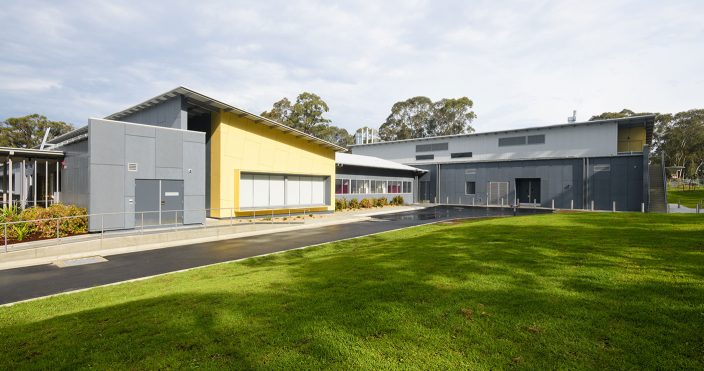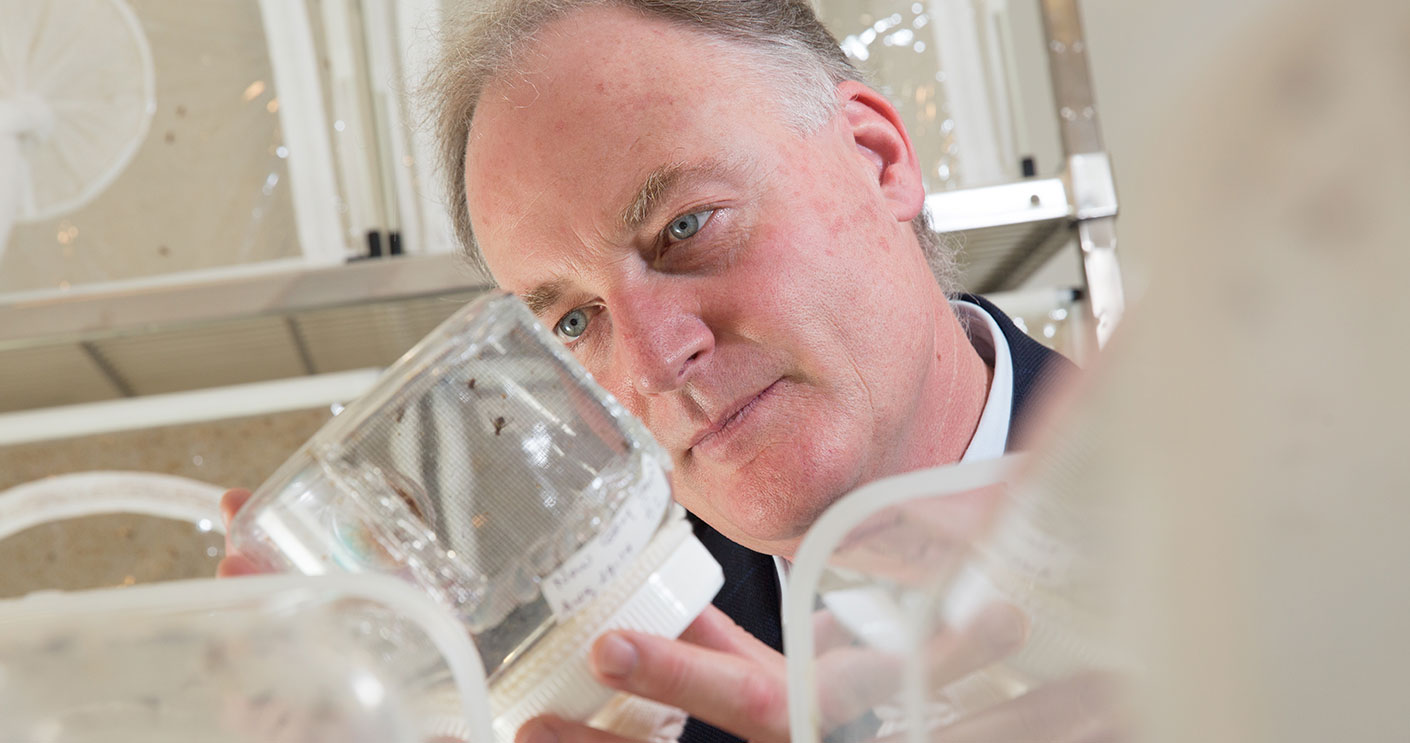Vision for the future: Distinguished Professor Phil Taylor.
They do things a little differently in Applied BioSciences. For one thing, they’re a research-only department, with a structure that allows for joint enterprise with external research partners to tackle big national and global biological challenges in agriculture, industry, the environment and disease.
Now, newly signed agreements with the NSW Department of Primary Industries (NSW DPI) have paved the way for Applied BioSciences to hire co-funded research staff that span the divide between the university and industrial worlds in a new way – giving them flexibility that traditional research positions usually can’t provide.
Applied BioSciences is headed up by Distinguished Professor Phil Taylor – internationally renowned for his work in invasive pest insects and Director of the ARC Centre for Fruit Fly Biosecurity Innovation.
“Unlike grant-funded positions or traditional research fellowships, which are constrained to a specific funded project, our new research appointments have the freedom to build a team of HDRs and post-docs, and to secure funding for projects they develop themselves,” Phil says.
The new positions will be broadly focused on themed challenges to commercial plants and livestock, including biological control (the use of natural enemies to control pest populations) and vector biology (the study and management of insects that transmit disease to plants or animals).
“Their potential activity is quite open and is intentionally flexible to promote an entrepreneurial mindset that will enable them to identify industry needs and develop solutions together with colleagues at both Macquarie and NSW DPI,” says Phil.
Noting that universities have tended to be good at innovation but weak in connectivity to end users, Phil says Applied BioSciences is endeavouring to flip the traditional academic research model.
“Instead of structuring ourselves around the interests of our individual academics, Applied BioSciences first works with end users and stakeholders to identify their needs before developing teams and securing funding to address those needs.”

Macquarie University’s Applied BioSciences facility.
This strong focus on translational research – that is, converting research findings into evidence-based practice – is one of the key elements of the University’s research strategy, says Professor Sakkie Pretorius, Deputy Vice-Chancellor (Research).
“Applied BioSciences embodies our mission to deliver world-leading research at scale to offer maximum benefit to Australia and beyond,” he says. “By sharing these advanced scientific discoveries with our industry and community partners, we are helping to create a healthier, more prosperous and sustainable future.”
Watch: How Macquarie’s ‘designer fruit flies’ are putting Dengue-spreading mozzies on notice >>
For the Department of Primary Industries – whose work in protecting and enhancing the State’s biosecurity represents a value of more than $100 billion to NSW each year – partnerships with respected research institutions like Macquarie are key to the State’s protection of its natural resources.
“It’s a very valuable relationship, with mutual benefits” says Professor Jim Rothwell, Director of one of the Department’s key biosecurity facilities. “It helps keep our experts abreast of emerging trends at the cutting edge of biosecurity science and at the same time we can guide the work of Applied BioSciences to help them deliver real-world outcomes for NSW primary producers.”
Phil says the University’s latest agreements with the NSW DPI offer a great model for other departments looking to nurture and formalise meaningful partnerships.
“Most academics have collaboration as an element of their activity, but collaboration is quite distinct from partnership,” he says. “What we’re aiming for here is a deeper form of engagement, where collaboration becomes a routine activity.
“Collaborators are like ‘acquaintances’ that come and go as projects are developed and completed. But partners are like family who stand together to address all manner of challenges together.”
Learn more about the work of Applied BioSciences.


 Back to homepage
Back to homepage